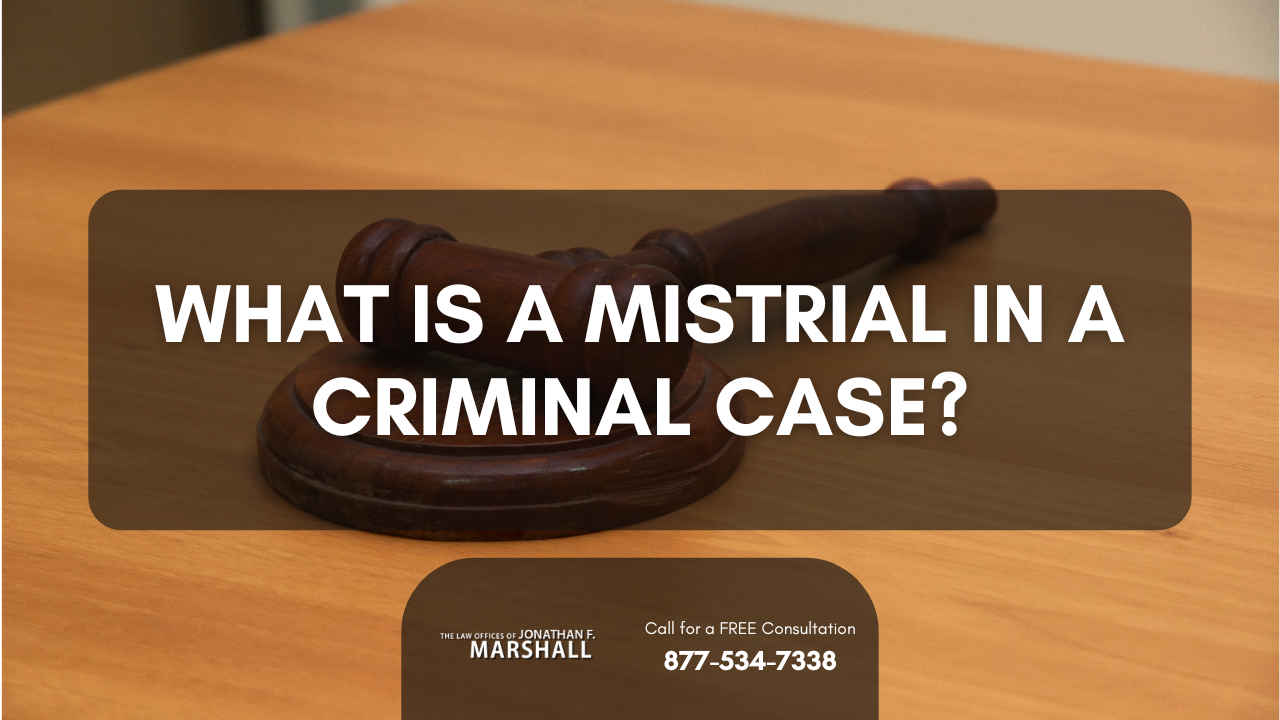In the courtroom, a mistrial can occur when a trial is deemed invalid or compromised in some way, leading to its dismissal. This can happen for various reasons, and it doesn’t always mean the end of a case. Instead, a mistrial opens up the possibility for a retrial, but the legal proceedings can become complex. To fully understand what a mistrial means and how it affects the justice process, let’s explore the circumstances under which a mistrial is declared and the consequences that follow.
What is a Mistrial?
A mistrial is a trial that is invalidated, usually due to some significant error, misconduct, or procedural issue that undermines the fairness of the trial. Essentially, a mistrial means that the trial is considered void and cannot be used as a basis for a verdict. The case may be dismissed temporarily, but the legal process isn’t over. In many instances, a retrial can be ordered, where the case is heard again from the beginning.
A mistrial is different from a case being dismissed for other reasons, such as a defendant being acquitted or the case being dropped due to lack of evidence. In a mistrial, the legal process is interrupted, and the trial will need to be resolved through a new trial or different legal process.
Common Causes of a Mistrial
There are several reasons why a mistrial may be declared, and they typically relate to issues that compromise the integrity of the trial. Some common causes include:
- Jury Deadlock: If the jury is unable to reach a unanimous decision or a sufficient majority, despite deliberating, the judge may declare a mistrial. This is often referred to as a “hung jury.” In such cases, the judge may encourage further deliberation, but if a verdict still cannot be reached, a mistrial is declared.
- Procedural Errors: Errors in the way the trial is conducted can lead to a mistrial. This could include a failure to follow proper legal procedures, improper instructions to the jury, or violations of legal rights during the trial process.
- Misconduct or Bias: If there is misconduct by the judge, attorneys, or jurors, or if there is evidence of bias that affects the fairness of the trial, a mistrial may be declared. This could include a juror discussing the case outside of deliberation or a defense attorney making inappropriate comments.
- Evidence Issues: Sometimes, inadmissible evidence is introduced to the court, or crucial evidence is accidentally revealed to the jury. If this occurs and it affects the fairness of the trial, a judge may declare a mistrial.
- Illness or Unavailability of Key Participants: If a key participant, such as a defendant, witness, or juror, becomes unavailable due to illness or other serious reasons, the trial may be postponed or a mistrial declared.
What Happens After a Mistrial?
When a mistrial is declared, the next steps depend on the specific circumstances of the case:
- Retrial: In most cases, the prosecution can choose to retry the case, though they are not obligated to do so. If the case is retried, it will start from scratch, with a new jury and possibly new evidence.
- Dismissal: In some cases, especially when a mistrial occurs due to an error on the part of the prosecution, the case may be dismissed. However, this is not the same as an acquittal, meaning the defendant could still face charges and be retried in the future.
- Plea Bargaining: Following a mistrial, the prosecution and defense may enter negotiations for a plea deal to avoid a retrial. If both sides agree to a deal, the case may be resolved without the need for a new trial.
- Appeals: If a mistrial is declared due to an error on the part of the judge or court procedures, the party that was disadvantaged may file an appeal to address the mistake and avoid a retrial. An appeal could lead to a different verdict or decision from an appellate court.
Implications of a Mistrial
The declaration of a mistrial can have wide-reaching implications for both the legal process and the individuals involved:
- For the Defendant: A mistrial can be a frustrating and uncertain experience for the defendant. While a mistrial does not result in a conviction, it doesn’t guarantee a favorable outcome either. The defendant may face a retrial, where the prosecution can attempt to present the case again.
- For the Prosecution: A mistrial doesn’t mean that the prosecution has lost the case. They can choose to retry the case, often with a stronger case or adjustments to remedy the issues that caused the mistrial. However, a mistrial can also be costly and time-consuming for the prosecution.
- For the Legal System: Mistrials underscore the importance of fairness and due process in the judicial system. They highlight the need for clear rules and procedures in court, as well as the crucial role of unbiased jurors. Additionally, repeated mistrials can strain the legal system and resources.
Conclusion
A mistrial is a legal occurrence that interrupts the trial process, usually due to significant procedural issues, misconduct, or a deadlocked jury. While a mistrial may seem like a setback, it’s not the end of the road—often, it leads to a retrial or other legal proceedings. Whether you are a defendant, attorney, or simply following the case, understanding the concept of a mistrial is key to navigating the legal process and anticipating what comes next
